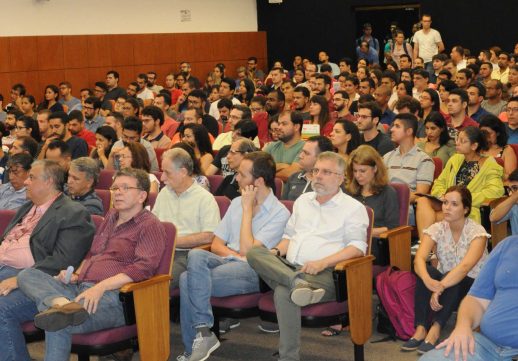
Coppe 60 years
60TH ANNIVERSARY AGENDA:
Atividades previstas:
ABOUT THE CELEBRATION
We at the Alberto Luiz Coimbra Institute for Graduate Studies and Research in Engineering – Coppe – celebrate our 60th anniversary at the front line of research in Engineering with the principles that have always guided our institution: quality and impartiality in science; openness; integrity; professionalism; respect and fairness.
The year 2023 is not only a year of celebrations, but first and foremost a year with a lot to be done, with an agenda of debates contemplating the most relevant subjects in Engineering and for our society. The Coppe + Society Agenda is aligned with the sustainable development goals and weighs the new challenges of an ever-changing world with the interdisciplinary approach that defines our scientific work.
Our Agenda will bring to the table the main subjects that dominate our society’s debates, such as artificial intelligence, low carbon solutions, blue and green economies, the role of Engineering in the social development and industrial growth of a country, and Health Engineering. Our Agenda will also be a forum for debates on the future of teaching and on the past and future roles of Coppe itself in regard to scientific research.

OUR TIMELINE
The first Funtec contract is signed between COPPE and the then BNDE, the primary support for graduate studies in the following years.
COPPE moves to the Cidade Universitária campus at Ilha do Fundão.
We create the Metallurgical and Materials Engineering, Civil Engineering, Production Engineering, and Naval Engineering programs, the latter of which would become the Marine Engineering program.
We create the Geotechnics research field in the Civil Engineering Program, motivated by the drama of the recurring floods since 1966.
Creation of Coppetec.
Creation of COPPE’s Systems and Computer Engineering Program.
Creation of COPPE's Biomedical Engineering Program.
Professor Sydney Martins Gomes dos Santos takes over COPPE's board of directors until 1975.
Professor Paulo Alcântara Gomes becomes the director of COPPE until 1981.
COPPE inaugurates the NCPU I, the first high-performance parallel computer developed in Brazil. One hundred times cheaper than similar computers produced in the United States and Japan, the NCPU I was built by researchers from COPPE's Parallel Computing Laboratory.
la da COPPE.
Professor Luiz Bevilacqua takes over COPPE as a director until 1992.
Professor Antonio Fernando Catelli Infantosi takes over COPPE's board of directors, remaining in the position until the following year.
COPPE Forum submits a document to the Federal Government of Brazil and the Brazilian National Congress with the first warning about the risk of power outages.
Professor Luiz Pinguelli Rosa takes over COPPE's board of directors for the second time, remaining in the position until 1997.
COPPE acquires a Cray supercomputer.
COPPE changes its name to the Alberto Luiz Coimbra Institute for Graduate Studies and Research in Engineering. The acronym COPPE remains.
COPPE creates its Technology Business Incubator for Community Cooperatives (ITCP).
After the rains that devastated Rio de Janeiro, a seminar at COPPE gives rise to the book Tormentas cariocas (“Climate Hardships of Rio de Janeiro”) and influences the creation of the Rio Alert early warning system.
Professor Segen Farid Estefen takes over COPPE's board of directors, remaining as a director until 2001.
The exhibition “Science, Technology and Human Development” is the first of many activities at the Espaço Coppe Miguel de Simoni lounge.
Professor Luiz Fernando Loureiro Legey takes over as COPPE's director until the following year.
The exhibition “Science, Technology and Human Development” is the first of many activities at the Espaço Coppe Miguel de Simoni lounge.
Professor Luiz Fernando Loureiro Legey takes over as COPPE's director until the following year.
The UN-IPCC, in which several COPPE researchers participated, wins the Nobel Peace Prize for its work in assessing climate change.
Professor Luiz Pinguelli Rosa takes over COPPE's board of directors until 2011, when he was re-elected for another term as the head of the institution until 2015.
COPPE participates in the construction and testing of Atlas, the largest detector of the Cern particle accelerator that will be used to search for the Higgs boson.
Two COPPE students receive Capes’ 2007 Thesis Award: Fabrício Machado da Silva, in the Engineering II area, and Miguel Benedito Furtado Júnior, in the Engineering IV area.
Brazil presents voluntary goals for reducing carbon emissions at COP-15, in Copenhagen. COPPE participated in the preparation of these goals.
COPPE creates the China-Brazil Center for Climate Change and Energy Technology Innovation, in cooperation with Tsinghua University.
Two COPPE students receive Capes’ 2009 Thesis Award: Eduardo Rocha de Almeida Lima, in the Engineering II area, and Juliana Braga Rodrigues Loureiro, in the Engineering III area.
COPPE student Augusto Cesar Vieira Getirana receives Capes’ 2010 Grand Thesis Award. In the same year, COPPE student Carolina Palma Naveira Cotta was awarded the Capes Award, in the Engineering III area.
Professor Luiz Pinguelli Rosa is re-elected and takes office for his fifth term as the director of COPPE, a position he held until 2015.
A partnership between COPPE and the Polytechnic School of UFRJ allows students to take graduate courses, even as undergraduates, in order to accelerate the completion of their master's degrees.
The Higgs boson is discovered at Cern, through an international effort in which COPPE is part of.
COPPE inaugurates Engepol, the only nano-scale polymer pilot plant in Brazil.
Three COPPE students receive the Capes’ 2011 Thesis Award: Tiago Roux de Oliveira, in the Engineering IV area, Joecila Santos da Silva, in the Engineering I area, and Aline Souza de Paula, in the Engineering III area.
COPPE student Wallace Alves Martins receives the Capes’ 2012 Thesis Award, in the Engineering IV area.
Creation of the Nanotechnology Engineering Program, the 13th of COPPE’s programs.
Two COPPE students receive Capes’ 2013 Thesis Award: Luciano Nóbrega Xavier, in the Engineering I area, and João Paulo Bassin, in the Engineering II area.
Creation of the International Reference Center on Ports and Sustainability (CIRPS), the result of a partnership between the International Virtual Global Change Institute (Ivig) of COPPE/UFRJ and the Secretariat of Ports of the Presidency of the Republic (SEP/PR), at the Itamaraty headquarters in Brasilia.
COPPE/UFRJ is accredited as a unit of the Brazilian Company of Research and Industrial Innovation (Embrapii) in Subsea Engineering for Oil and Gas Exploration.
Three COPPE Students are conferred Honorable Mention in Capes’ 2015 Award: Gustavo Medeiros Freitas, Jovani Luiz Favero, and Monique Osorio Talarico da Conceição.
Professor Edson Watanabe becomes the new director of Coppe, remaining in the position until 2019.
COPPE and the China University of Petroleum inaugurate the China–Brazil Joint Institute for Deep Sea Technology.
COPPE inaugurates the Lobo Carneiro supercomputer.
Creation of COPPE's Urban Living Lab for Smart Construction Solutions (LCI).
Professor Romildo Dias Toledo Filho takes over Coppe's board of directors, remaining in the position until 2023.
COPPE researchers develop studies and technologies to fight against the effects of COVID-19.
COPPE successfully tests its mechanical ventilators for patients with COVID-19.
Ariel, a robot developed at COPPE, receives the ANP Technological Innovation Award.
Cern's Council approves the accession of Brazil as an Associate Member.
The Thematic Network on Renewable Energy, Hub.Rio, is inaugurated at COPPE.
COPPE inaugurates the Integrated Center for Additive Manufacturing.
COPPE inaugurates the Sustainable Multi-Cogeneration Island.
Inauguration of COPPE I, COPPE's collaborative space dedicated to entrepreneurship and innovation.
Professor Suzana Kahn Ribeiro becomes the new director of Coppe.
